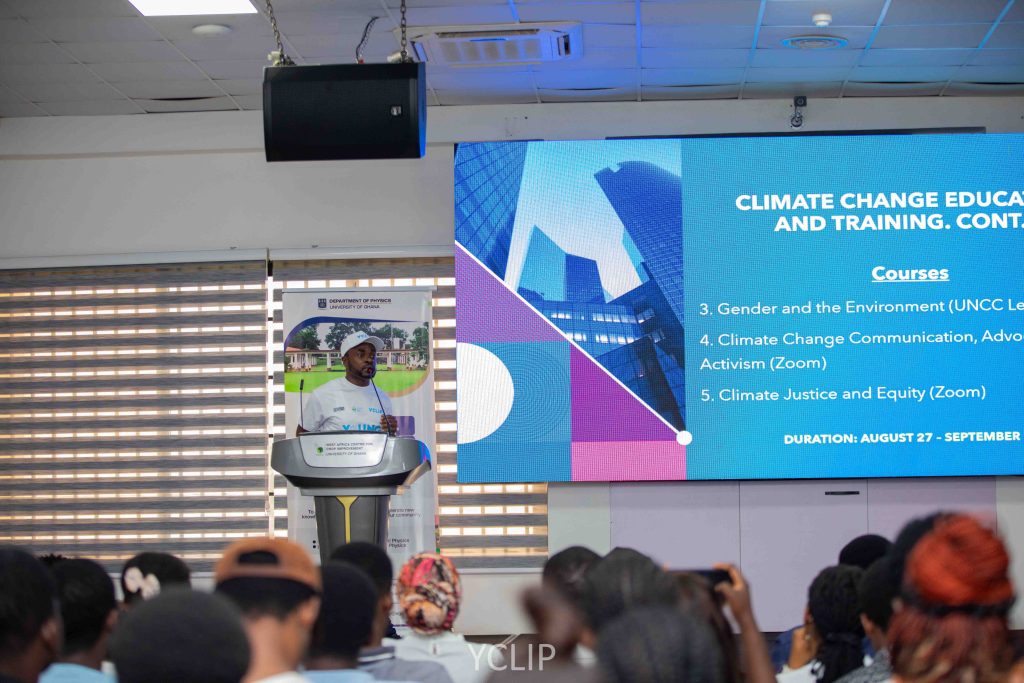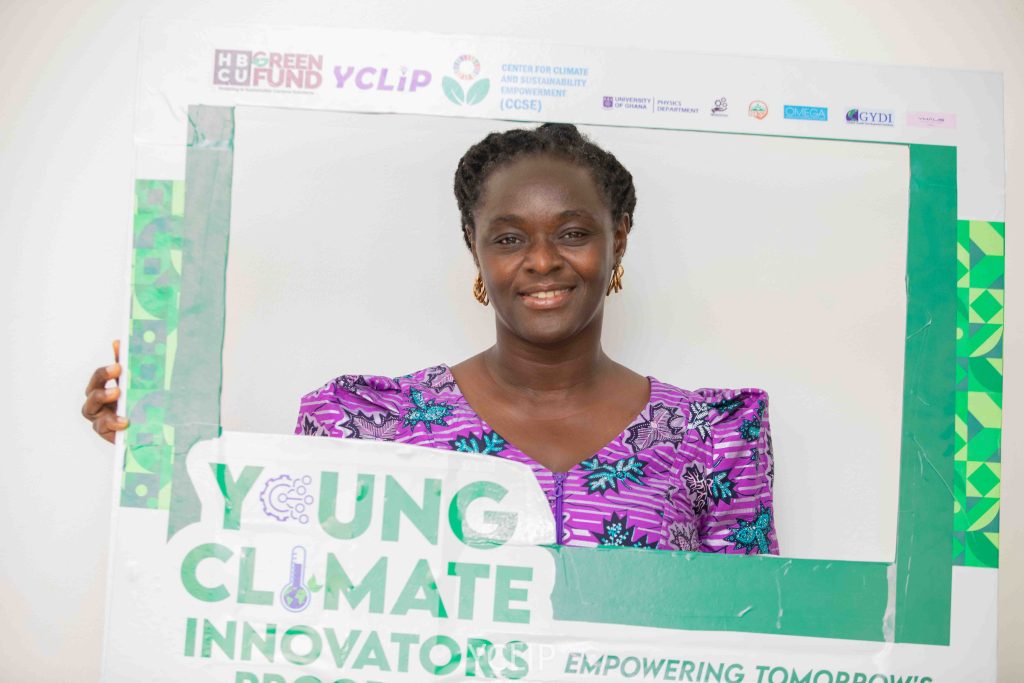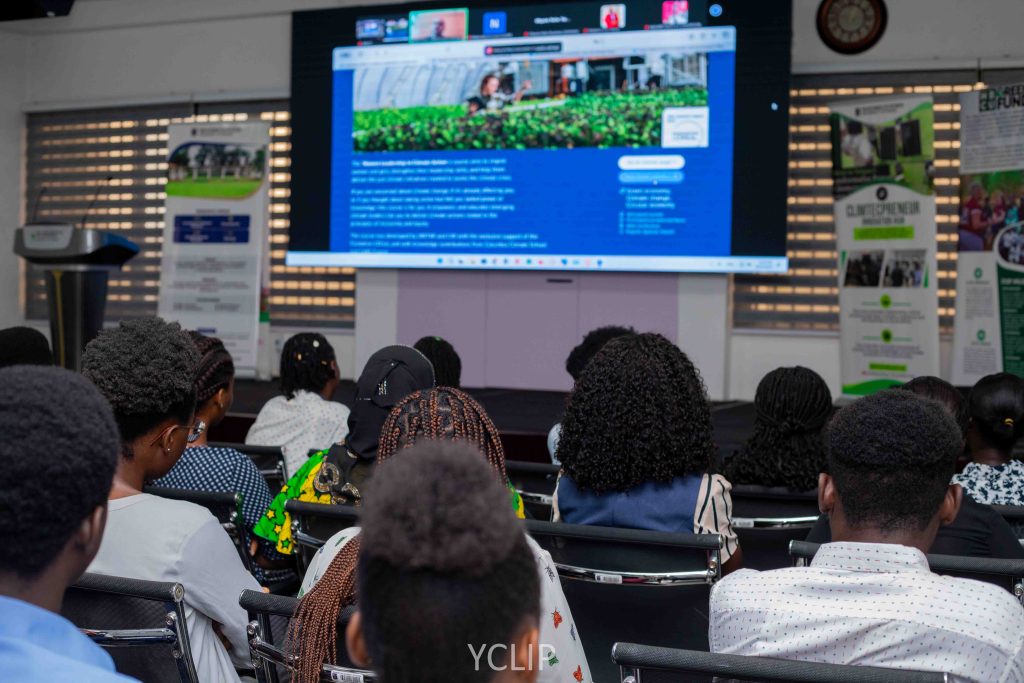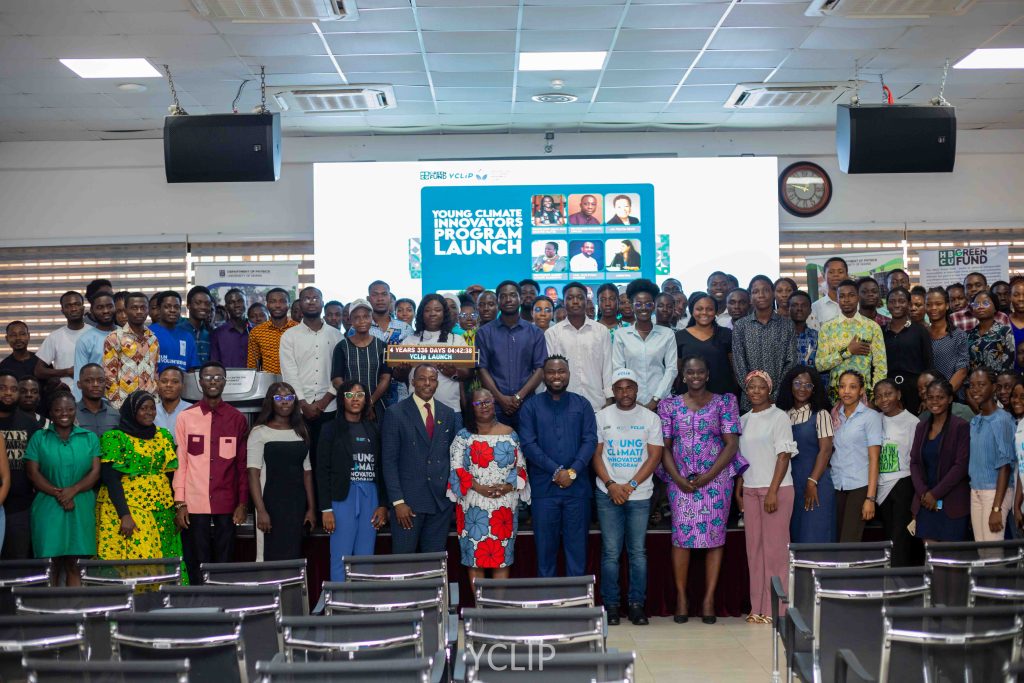Youth innovation is crucial for climate action as it brings fresh perspectives, creativity, and energy to the development of sustainable solutions. By empowering young people to lead, we ensure that climate strategies are forward-thinking, inclusive, and resilient, potentially addressing current challenges and future impacts.
In light of this, the Young Climate Innovators Programme (YCLIP) came to life on August 20th 2024 in Accra, Ghana. This initiative, supported by UN CC:Learn, the University of Ghana, the Centre for Climate and Sustainability Empowerment, the HBCU Green Fund, and the Omega Institute, seeks to empower young students to develop and implement innovative climate solutions.

Mr. Hussein Kassim, Executive Director of the Centre for Climate and Sustainability Empowerment and organizer of the training programme, presented at the launch.
The YCIP is a comprehensive training programme. The first phase, delivered in collaboration with UN CC:Learn, will involve intensive training for 200 students from the University of Ghana. These students, selected for their diverse academic backgrounds, will undergo one month of training focused on the science of climate change, climate change communication, advocacy, activism, and topics like the green economy and gender and environment.
As part of this initial and qualifying phase, participants will have to complete three UN CC:Learn courses (Climate Change: From Learning to Action, Intro to Green Economy, and Gender and Environment) and participate in three webinar series. At the end of this phase, 25 students will be selected to pursue more in-depth training. This second phase will involve more hands-on experiences, including research work, an entrepreneurship boot camp, community engagement, and the development of innovative solutions in critical areas such as circular economy, biodiversity conservation, renewable energy, water, sanitation and health (WASH), and climate-smart agriculture.
During the launch event, several notable speakers shared their insights and perspectives. Prof. Nana Ama Browne Klutse, Professor at the University of Ghana and Vice Chair of the Working Group 1 of the United Nations Intergovernmental Panel on Climate Change (IPCC), expressed her optimism that the programme would foment innovations that could reshape climate action in the future.
“We know that climate change is a global challenge, but it’s also a local challenge because we feel the impact locally. So, we thought that the young people, the youth are very good with innovations, and it’s an opportunity also for us to tap into their innovation and provide solutions for climate change, so we’re engaging them.”

Prof. Nana Ama Browne Klutse at the launch.
The UN CC:Learn team was present online. Ms. Cristina Rekakavas, Specialist, UNITAR, and coordinator of the UN CC:learn Programme, walked participants through UN CC:Learn, its collaboration with the Government of Ghana, and presented three inspiring climate stories from UN CC:Learn Champions. Mr. Lucas Terra, Training Assitant, UNITAR, presented the UN CC:Learn e-learning platform to the students while showing them how to navigate it and enroll in the courses they need to complete.

The UN CC:Learn Team walking the students through the courses.
The launch of the Young Climate Innovators Programme marks a pivotal moment in Ghana’s climate action journey. The programme’s emphasis on innovation and community engagement ensures that it will raise awareness and foster tangible solutions that can make a real difference in the fight against climate change.
Watch the news report:

